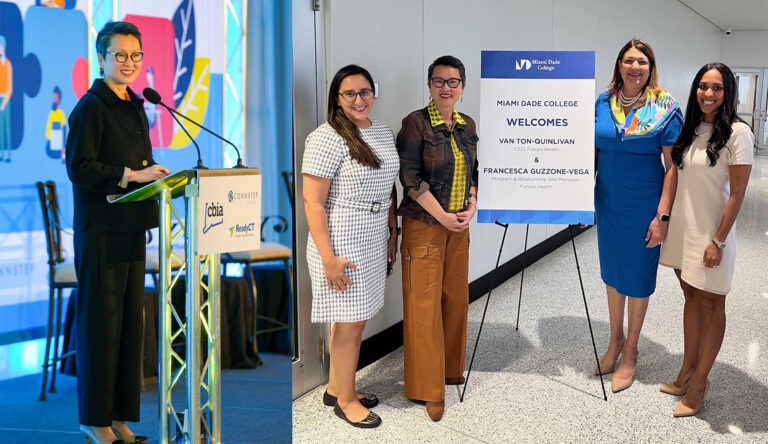Futuro Health Will Serve a Key Role in Consortium For Public Health Information Technology
Futuro Health, along with Cal State Long Beach, has received a $10 million grant to develop culturally relevant public health information technology, including improving COVID-19 data collection and increasing representation of underrepresented communities within the public health IT workforce.
The California Consortium Public Health Informatics and Technology (CCPHIT) Workforce Development Program, led by CSULB, will recruit, train and place more than 700 students in California’s public health workforce.
CCPHIT’s credential pathway will be supported by Futuro Health, a pioneering joint venture of Kaiser Permanente and the California Health Workers Union (SEIU-UHW), which has trained over 4,000 individuals into the workforce in just 18 months. Of these graduates, over 40 percent are Hispanic/Latino and over 20 percent are African American.
“Futuro Health is so pleased to play a catalytic role in forming this multi-system partnership between public institutions and bring more Californians into good healthcare jobs. Our collaboration with CSU Long Beach, UC Berkeley, and a network of community colleges will create opportunity for adults who aspire for good careers and better position the state to address health outcomes,” said Van Ton-Quinlivan, CEO of Futuro Health, and former Executive Vice-Chancellor of the California Community Colleges.
Over the next four years, community college and university partners will develop curriculum geared toward diverse students seeking to attain certifications, and/or associate, bachelor’s, and master’s degrees. Futuro Health will provide certification programming to equip students with industry recognized skills for those seeking immediate employment and will provide student support services, virtual educational platforms, and previously created curricula. In addition, Futuro Health Navigators will assist prospective students with the enrollment process and/or connect them with the nearest community college or university. Finally, Futuro Health will lead outreach activities to the broader community.
“I am so pleased that this project will form a consortium to collectively provide a high quality and unique educational opportunity for over 700 underserved students on interdisciplinary approaches in public health informatics and technology,” said Professor Kamiar Alaei, Department Chair of Health Science at California State University, Long Beach, and the principal investigator/director for the project. “We have numerous supports from over 26 public health agencies, major hospitals, education providers, community-based agencies and advocacy organizations who have made a commitment in the form of support, resources, expertise, internships, recruiting, outreach and placement efforts.”
The CCPHIT is a first-of-its-kind collaboration between the CSUs, UCs, community colleges, as well as private organizations to meet California’s growing public health demands. The Department of Health Science will lead CCPHIT in collaboration with the Department of Health Care Administration and main partners from other institutions including UC Berkeley, Cal State East Bay, community colleges such as Bakersfield College and Shasta College, CAL2CAL, Institute for International Health and Education, Futuro Health, and California Department of Public Health.
This grant funding was a result of President Joe Biden’s executive order to establish the COVID-19 Pandemic Testing Board to ensure a sustainable public health workforce. It also coincides with the Biden Administration’s goal to train four thousand individuals on public health informatics and technology, which will also improve the nation’s public health workforce.



